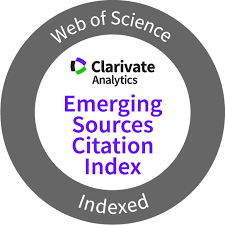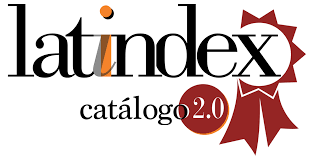La comunicación como factor de éxito en la Empresa Familiar. Análisis de 40 testimonios del empresariado sobre aspectos clave de la gestión / Communication as a success factor in the Family Business. Analysis of 40 entrepreneur’s testimonials about key as
DOI:
https://doi.org/10.5783/revrrpp.v10i19.630Keywords:
Comunicación, Recursos Intangibles, Reputación, Marca, Empresa FamiliarAbstract
La Empresa Familiar, como fenómeno que explica el dinamismo económico de los países, ha sido estudiada desde diversos puntos de vista, destacando entre ellos el de la Sucesión, el Gobierno Corporativo o los factores que condicionan su Competitividad. En cambio, son muy escasos los estudios relativos a la visión que estas organizaciones tienen sobre la Comunicación y su incidencia en la consecución del éxito.
El presente estudio se plantea como objetivo principal determinar si el concepto de Comunicación es considerado por los empresarios familiares como un factor clave de éxito dentro de su visión general sobre gestión y estrategia. Asimismo, intenta desentrañar la visión que tienen los empresarios sobre el campo de la Comunicación a partir de los términos relacionados con esta materia que más emplean en sus testimonios. Finalmente, el trabajo procede a caracterizar los distintos roles que confieren estos líderes empresariales a la Comunicación desde el punto de vista instrumental, en tanto que herramienta que contribuye a resolver aspectos concretos de la gestión.
La investigación se fundamenta en una revisión de la literatura generada por los estudiosos dentro del campo de los Recursos Intangibles y la Reputación Empresarial, y se detiene además en los análisis que se refieren al fenómeno conocido con el nombre de Empresa Familiar. A partir de este marco teórico, se plantea un trabajo de campo que toma como objeto de investigación los relatos o testimonios de los cuarenta empresarios que se recogen en los dos volúmenes que conforman la obra de KPMG titulada Los que dejan huella. Para su estudio, se emplean técnicas de análisis de contenido y de análisis del discurso.
Palabras clave: comunicación, relaciones públicas, recursos intangibles, reputación, marca, empresa familiar.
Abstract
The Family Business, as a phenomenon that explains the economic dynamism of the countries, has been studied from several points of view, standing out among them the Succession, the Corporate Governance or the factors that condition its Competitiveness. On the other hand, there are fewer specific studies about organization´s vision relating Communication Management and its impact on the achievement of success.
The study aims to determine whether the concept of communication is considered by family entrepreneurs as a key success factor within their general vision of management and strategy. And subject to it, it tries to unravel the vision that businessmen and businesswomen have in the field of Communication from the terms related to this matter that they use most in their testimonies. Likewise, the work proceeds to characterize the different roles that these business leaders confer on Communication from the instrumental point of view, as a tool that contributes to solving specific aspects of management.
The research is based on a review of the literature generated by scholars in the field of Intangible Resources and Business Reputation. It´s also focused on the analysis referred to the phenomenon known as the Family Business. From this theoretical framework, the object of study is based on the stories or testimonies of the forty businessmen collected over almost 800 pages in the two volumes that set up the work of KPMG entitled Those who leave their mark. The content and speech analysis techniques are used for their study.
The work confirms the importance of Communication in the transmission of the values that guide the activity of companies and make a difference with respect to their key competitors; hence, the intangibles that contribute to the configuration of business reputation. Likewise, based on the businessmen's own testimonies, the instrumental functions that businessmen confer on Communication for the achievement of their corporate and business objectives are identified.
As highlight in the study, the management of business intangibles is one of the latest and most important innovations in modern business management, and its leading role is the result of the evolution of strategic management towards new value niches within companies and its Communication´s development. Besides, in recent years, Communication has shifted its focus from the product to the brand, image and reputation of the companies.
Furthermore, within the resources included in the category of intangibles, reputation has become the real territory in which companies compete to win the favor of their clients and consolidate their position in the markets. This relevance acquired by reputation has led some authors to speak of the “reputation economy” to refer to the new economic and social paradigm in which we find ourselves.
Keywords: communication, public relations, intangible resources, reputation, brand, family business.
Downloads
References
ALLOZA LOSANA, A. (2012). Reflexiones sobre la reputación necesaria. adComunica. Revista de Estrategias, Tendencias e Innovación en Comunicación, 3, 27-47. DOI: http://dx.doi.org/10.6035/2174-0992.2012.3.
ARAGÓN, A. y RUBIO, A. (2005). Factores asociados con el éxito competitivo de las pymes industriales en España. Universia Business Review-Actualidad Económica, 4º trimestre, 36-49.
CAPRIOTTI-PERI, P. (2004, noviembre). Imagen y reputación: análisis de similitudes y diferencias conceptuales. Ponencia presentada en el I Congreso Internacional de Investigadores en Relaciones Públicas, Sevilla: AIRP.
CHUN, R. (2005). Corporate reputation: Meaning and measurement. International Journal of Manegement Reviews. 7 (2), 73-130. DOI: https://doi.org/10.1111/j.1468-2370.2005.00109.x
DE QUEVEDO, E.; DE LA FUENTE, J.M. y DELGADO, J.B. (2005). Reputación corporativa y creación de valor. Marco Teórico de una relación circular. Investigaciones Europeas de Dirección y Economía de la Empresa, 11 (2), 81-97.
FUNDACIÓN IFSR (2010). Material de Formación sobre NIIF para pymes. Londres: IFSR.
GALVIS ARDILA, Y. y SILVA AGUDELO, M. C. (2016). Comunicación: reputación y crecimiento empresarial. Pensamiento & Gestión, 41, 194-239.
GONZÁLEZ OÑATE, C. y MONLEÓN LÓPEZ, P. (2013). La gestión de intangibles en la Dirección de Comunicación Corporativa. Estudio sobre el Dircom en las organizaciones de Reino Unido. Doxa Comunicación, 17, 27-56. DOI: https://doi.org/10.31921/doxacom.n17a1
INSTITUTO DE LA EMPRESA FAMILIAR (2015). La empresa familiar en España. Barcelona: IEF
JÁUREGUI, R. (2009). Reputación corporativa, RSC, sostenibilidad, acción social… ¿de qué hablamos? Telos, 79, 66-74.
KPMG (2013). Los que dejan huella. 20 historias de éxito empresarial. Madrid: KPMG.
KPMG (2016). Los que dejan huella II. 20 historias de éxito empresarial. Madrid: KPMG.
MARTÍN DE CASTRO, G. y NAVAS, J.E (2006). La importancia de la reputación empresarial en la obtención de ventajas competitivas sostenibles. Investigaciones Europeas de Dirección y Economía de Empresa, 12 (3), 29-39.
MARTÍNEZ, I. y OLMEDO, I. (2010). Revisión teórica de la reputación en el entorno empresarial. Cuadernos de Economía y Dirección de la Empresa, 13 (44), 59-78. DOI: https://doi.org/10.1016/S1138-5758(10)70019-0
MARTINEZ-CARRASCO PLEITE, F. y EID, M. (2017). El nivel de conocimiento y la reputación social de las empresas cooperativas. El caso de la región de Murcia. CIRIEC-España, Revista de Economía Pública, Social y Cooperativa, 91, 5-29. DOI: https://doi.org/10.7203/CIRIEC-E.91.8865
OTERO FLORES, S. y TADDEI BRINGAS, C. (2018). Competitividad de Empresas Familiares. Interciencia, 43 (4), 236-241.
PÉREZ, A. y RODRÍGUEZ DEL BOSQUET, I. (2014). Identidad, imagen y reputación de la empresa: integración de propuestas teóricas para una gestión exitosa. Cuadernos de Gestión, 14 (1), 97-126. DOI: https://doi.org/10.5295/cdg.130389ap
REAL ACADEMIA ESPAÑOLA (2019). Diccionario de la Lengua Española. Recuperado el 11 de julio de 2019 de https://dle.rae.es/srv/search?m=30&w=reputaci%C3%B3n
RIVERA, A.B.; ROJAS, R.L.; RAMÍREZ, F. y ÁLVAREZ DE FERNÁNDEZ, T. (2005). La Comunicación como herramienta de gestión organizacional. Revista Negotium, 1 (2), 32-48.
RUBIO, A. y ARAGÓN, A. (2002). Factores explicativos del éxito competitivo. Un estudio empírico en la pyme. Cuadernos de Gestión, 2 (1), 49-63.
RUEDA GALVIS, J.F. y RUEDA GALVIS, M.A. (2019). Definición, importancia y análisis de la empresa familiar. Lúmina 20, 20, 8-28. DOI: https://doi.org/10.30554/lumina.20.3260.2019
SÁNCHEZ, J. J. (2005). Análisis de contenido cuantitativo en medios. En Berganza Conde, M.R. & Ruiz San Román, J.A. (EDS). Investigar en Comunicación. Madrid: McGraw-Hill.
SEN, S.; BHATTACHARYA, C.B. y KORSCHUN, D. (2006). The Role of Corporate Social Responsibility in Strengthening Multiple Stakeholder Relationships: A Field Experiment. Journal of the Academy of Marketing Science, 34 (2), 158-166. DOI: https://doi.org/10.1177/0092070305284978
TERMIÑO, I. y PUEBLA, I. (2014). Aspectos relevantes de la empresa familiar en España. Caso particular del emprendimiento. Sociedad y Utopía. Revista de Ciencias, 44, 210-227.
VILLAFAÑE, J. (2012). La gestión de los intangibles empresariales. Comunicaçao e Sociedade, 8, 101-113. DOI: https://doi.org/10.17231/comsoc.8(2005).1185
Downloads
Published
How to Cite
Issue
Section
License
Authors publishing in this journal agree to the following terms:
a. Authors retain copyright and grant the journal the right to be the first publication of the work as licensed under a Creative Commons Attribution License that allows others to share the work with an acknowledgement of authorship of the work and initial publication in this journal.
b. Authors may separately enter into additional arrangements for non-exclusive distribution of the version of the work published in the journal (e.g., placing it in an institutional repository or publishing it in a book), with an acknowledgement of initial publication in this journal.
c. Authors are allowed and encouraged to disseminate their work electronically (e.g. in institutional repositories or on their own website) before and during the submission process, as it can lead to productive exchanges, as well as earlier and higher citation of published work (see The Effect of Open Access).




